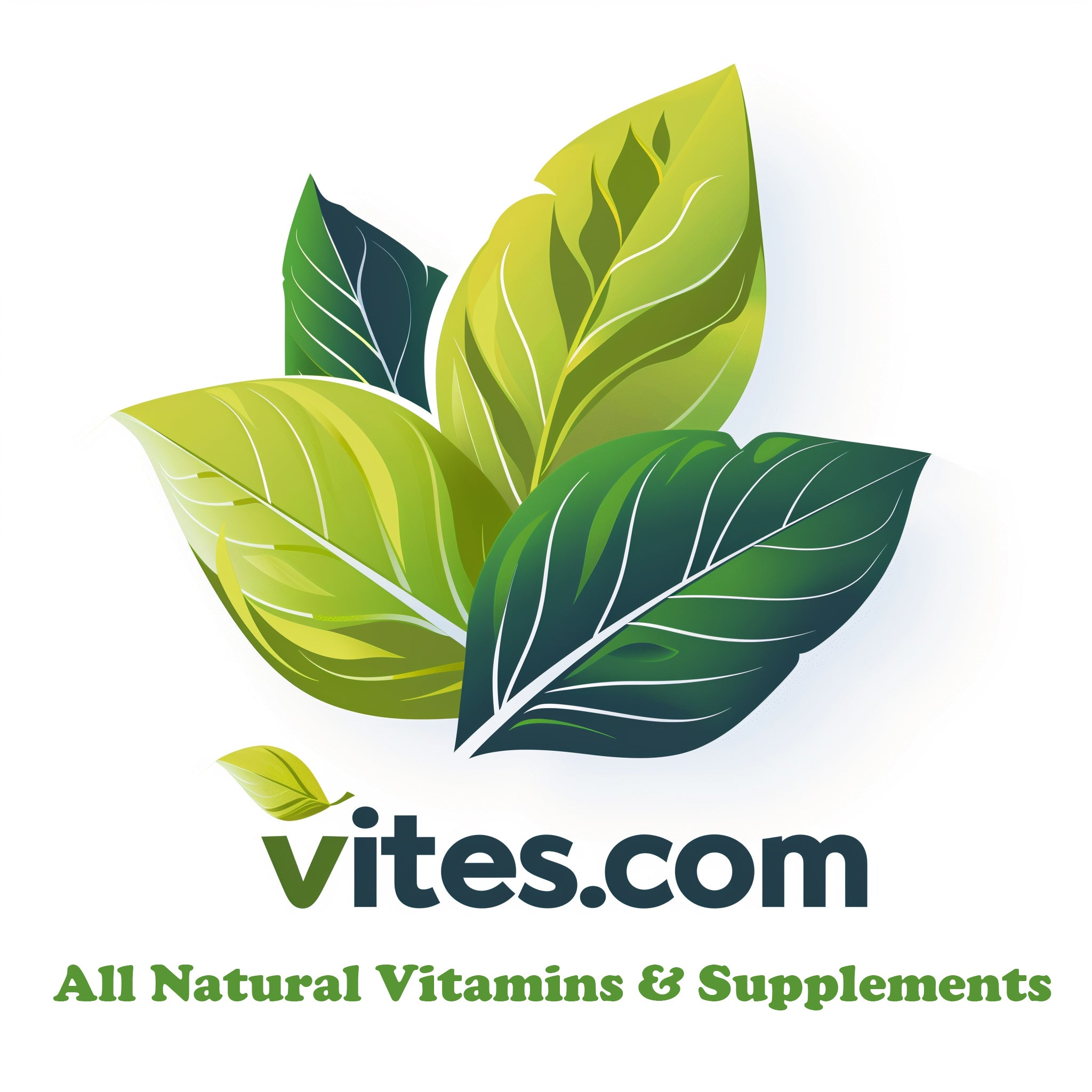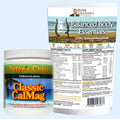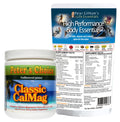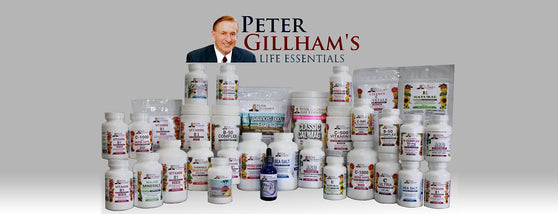High Performance Body Essential Vitamins and Minerals

High Performance Body Essential Vitamins and Minerals
Introduction
Why Vitamins and Minerals are Important
Essential Vitamins for High Performance Body
1. Vitamin A
2. Vitamin B Complex
3. Vitamin C
4. Vitamin D
5. Vitamin E
Essential Minerals for High Performance Body
1. Calcium
2. Magnesium
3. Iron
4. Zinc
5. Potassium
Conclusion
FAQs
Introduction
Welcome to the world of high-performance living! In order to achieve your peak physical and mental performance, it's essential to nourish your body with the right nutrients. One crucial aspect of this is ensuring you're getting an adequate supply of vitamins and minerals. In this article, we'll explore the importance of these micronutrients and discuss the essential vitamins and minerals your body needs for optimal performance.
Why Vitamins and Minerals are Important
Before we delve into the specific vitamins and minerals, let's understand why they are vital for a high-performance body. Vitamins and minerals are essential for various bodily functions, such as energy production, immune system support, and cellular repair. They act as co-factors for enzymes, which are responsible for numerous biochemical reactions in the body. These micronutrients also play a key role in maintaining hormonal balance, supporting cognitive function, and promoting overall well-being.
Essential Vitamins for High Performance Body
Vitamin A
Vitamin A is crucial for maintaining healthy vision, immune function, and cell growth. It acts as an antioxidant, protecting the body against free radicals. Sources of vitamin A include carrots, sweet potatoes, spinach, and liver. Ensure you're consuming enough of this vitamin to support your body's performance.
- Vitamin B Complex
The B vitamins are a group of water-soluble vitamins that are essential for energy production, brain function, and the metabolism of proteins, carbohydrates, and fats. This complex includes vitamins B1 (thiamine), B2 (riboflavin), B3 (niacin), B5 (pantothenic acid), B6 (pyridoxine), B7 (biotin), B9 (folate), and B12 (cobalamin). Whole grains, leafy greens, eggs, and lean meats are excellent sources of B vitamins.
- Vitamin C
Vitamin C is renowned for its immune-boosting properties. It helps protect cells from oxidative stress, aids in collagen synthesis, and supports the absorption of iron. Citrus fruits, bell peppers, strawberries, and kiwi are rich sources of vitamin C. Make sure to incorporate these foods into your diet for optimal performance.
- Vitamin D
Vitamin D is essential for bone health, immune system function, and muscle strength. It aids in the absorption of calcium and phosphorus, making it crucial for maintaining strong bones. Sunlight is a natural source of vitamin D, but it can also be found in fatty fish, fortified dairy products, and egg yolks.
- Vitamin E
Vitamin E is a potent antioxidant that helps protect cells from damage caused by free radicals. It supports immune function and promotes healthy skin. Nuts and seeds, spinach, and avocados are excellent sources of vitamin E. Incorporating these foods into your diet can help enhance your performance.
Essential Minerals for High Performance Body
- Calcium
Calcium is vital for maintaining strong bones and teeth. It also plays a crucial role in muscle contraction, nerve transmission, and blood clotting. Dairy products, leafy greens, tofu, and fortified plant-based milk are good sources of calcium.
- Magnesium
Magnesium is involved in over 300 enzymatic reactions in the body and is crucial for energy production, muscle function, and bone health. It can be found in nuts, seeds, legumes, and whole grains. Ensuring adequate magnesium intake is essential for optimizing your performance.
- Iron
Iron is necessary for the production of hemoglobin, a protein in red blood cells that carries oxygen to the body's tissues. It plays a vital role in energy production and cognitive function. Good sources of iron include lean meats, spinach, lentils, and fortified cereals.
- Zinc
Zinc is involved in immune function, protein synthesis, and wound healing. It also supports cognitive function and fertility. Oysters, beef, poultry, beans, and seeds are rich sources of zinc. Including these foods in your diet can help boost your performance.
- Potassium
Potassium is an electrolyte that helps maintain fluid balance, supports muscle function, and regulates blood pressure. It can be found in bananas, sweet potatoes, spinach, and beans. Adequate potassium intake is crucial for maintaining optimal performance.
Conclusion
Achieving a high-performance body requires more than just physical training and mental focus. It necessitates providing your body with the essential vitamins and minerals it needs to thrive. By incorporating a diverse range of nutrient-rich foods into your diet, you can optimize your performance, support your immune system, and enhance your overall well-being.
BUY NOW - HIGH PERFORMANCE BODY ESSENTIALS 30 PCK
FAQs
Can't I get all the necessary vitamins and minerals from food alone?
While a balanced diet can provide many essential nutrients, it can sometimes be challenging to meet all your body's needs solely through food. Supplementation can be a helpful way to ensure you're getting an adequate supply of vitamins and minerals, especially if you have specific dietary restrictions or deficiencies.
Can taking excessive amounts of vitamins and minerals be harmful?
Yes, consuming excessive amounts of certain vitamins and minerals can have adverse effects on your health. It's important to follow recommended daily intake guidelines and consult with a healthcare professional or a registered dietitian before starting any new supplementation regimen.
Are there any vitamins and minerals specifically beneficial for athletes?
Athletes may have higher nutrient needs due to increased physical activity. Some vitamins and minerals, such as B vitamins, iron, and magnesium, are particularly important for supporting energy production, muscle function, and recovery. It's advisable for athletes to focus on a well-rounded diet that meets their specific requirements.
Can vitamin and mineral deficiencies impact athletic performance?
Yes, deficiencies in certain vitamins and minerals can impair athletic performance. For example, low iron levels can lead to fatigue and reduced endurance, while inadequate vitamin D levels may impact muscle strength. It's crucial to maintain optimal nutrient levels to support your body's performance.
Are there any specific vitamins or minerals that can help with post-workout recovery?
Several vitamins and minerals play a role in post-workout recovery. Vitamin C aids in muscle repair, while magnesium helps relax muscles and reduce inflammation. Additionally, adequate protein intake is essential for muscle recovery. Consider incorporating nutrient-dense foods and, if needed, consult a healthcare professional for personalized recommendations.
BUY NOW - HIGH PERFORMANCE BODY ESSENTIALS 30 PCK
**Please note that it's important to consult with a healthcare professional or a registered dietitian for personalized advice regarding your specific dietary needs and any supplementation.**








